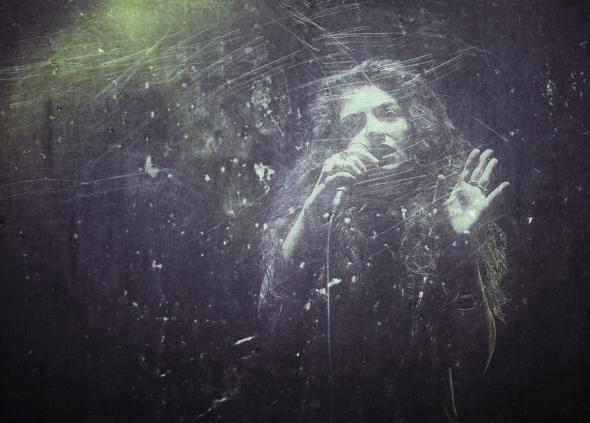In a Slate “Music Box” review this week I talk about new albums by New Zealand-born teen prodigy Lorde and L.A. sister trio Haim, which signal that we might finally have arrived at a point when rock, pop, R&B, and hip-hop mix with more blithe abandon and fewer scare quotes. But there’s another old prejudice their stories ought to put to rest—against the way many young women come up through the record industry.
To most listeners it seems like Haim and Lorde appeared out of nowhere in the past year, but they have longer histories. After their Partridge Family-style start in their parents’ classic-rock cover band, the two eldest of the San Fernando-bred Haim sisters were in a Richard Marx-produced tween-pop band called the Valli Girls in the early 2000s, which had a tune on the Sisterhood of the Travelling Pants soundtrack and a theme song called “It’s a Hair Thing” for a kids’ TV show called Trollz. The sisters have said they quit the group because they wanted to be writing their own material. As for Lorde (born Ella Yelich-O’Connor), the new 16-year-old poet of minimalist R&B? She was discovered in an online talent-show video, signed and “developed” by Universal starting when she was 12.
These kinds of backstories tend to breed suspicion, and catcalls about inauthenticity—witness the Internet-wide pillorying of Lana Del Rey in 2011 and 2012 after her past as major-label signee Lizzy Grant came out, as if that somehow undermined a persona that couldn’t be more draped in theatrical artifice if her adopted pseudonym had been David Bowie. In a similar vein I was disappointed when a friend, the usually astute critic Maura Johnston, wrote in Spin recently that “it’s hard not to view [Lorde’s] age as some sort of clumsy ploy,” insinuating that her corporate minders have been ordering her to drop references to her slender years into her songs. To my ears, her adolescent perspective is integral to everything she writes, the grounding of her poetic electricity. Nothing seems wedged in out of place.
What makes it less believable that this 16-year-old writes from a 16-year-old point of view than it was when Taylor Swift did the same, except that Lorde does it with impossibly greater sophistication, like a pop Bonjour Tristesse? If anything I’d expect accusations that some grownup had slipped her a thesaurus, but she’s said in interviews that songwriting partner and producer Joel Little mainly serves to rein in her verbal excesses—and that she selected him after rejecting many proposed collaborators, because he wanted to support her vision, not supplant it. You might as well attack those “manufactured” bands the Sex Pistols and the Jimi Hendrix Experience, both assembled by producers … except that nobody does.
And then this week Sinead O’Connor condescended to assert, out of “concern,” that the Disney-cultivated multi-millionaire Miley Cyrus is being “pimped” by the music industry, despite the fact that Cyrus repeatedly expressed enthusiasm for the twerking, racial-boundary-violating direction she would soon take before the current gossip cycle even began. Judge it as you please (and I’m ambivalent myself), but denying Cyrus’s agency smacks of the kind of contempt that says all Muslim women wearing veils are duped victims of their husbands and fathers, as if cultural imperatives weren’t multisided, as if every Western woman in a tight skirt and heels weren’t also fulfilling expectations she can either receive passively, resist, or make her own.
The fact is that for many young women the route to a life in music is more likely to lead through girl groups and talent shows than out of a garage band—and there’s no reason to assume that most scruffy guys with guitars aren’t equally hungry for success. It’s the do-it-yourself model, in many ways, that demands a higher level of presumption: the arrogance to believe your way is superior to what the professionals are already doing, as well as the luxury to chase contrarian romantic dreams rather than straightforward career goals. Look at Motown and Nashville—careerists have made at least as much great music as anyone else. As the next generation sweeps away some rules about who gets to speak what pop language, let’s also ease up the vigilance over where they learn those vocabularies, and concentrate on what they have to tell us.
